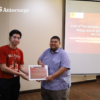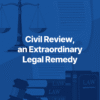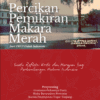The suspension of three KPK leaders and subsequent appointment of three interim leaders with a government regulation-in-lieu-of-law in 2009 raised some degree of controversy.
The enactment of the regulation in-lieu-of-law itself was questionable amid expectations that police should halt their investigations into allegations against Chandra Hamzah and Bibit Samad Rianto, two of the KPK’s leaders who were declared suspects in a bribery and abuse-of-power case.
Whatever the answer is, it is in the nation’s interests that the Corruption Eradication Commission (KPK) remains effective. Since its establishment in 2002, the KPK has become the spirit of hope for Indonesians in fighting corruption. Since its creation, the KPK has been· deemed a “super body” with the power to investigate as well as prosecute corruption suspects and it has shown an impressive record in sending corruptors to prison.
Of course, not everyone has been happy with these achievements, particularly those whose interests and comfort have been disrupted by the KPK’s work. And a backlash against the commission now threatens to remove its basic powers. At this level, Indonesia’s commitment to eradicating corruption is being tested whether we are willing to struggle bard to continue fighting corruption, or live on with corruption that has apparently now become a way of life here.
We must not forget that Indonesia ratified the United Nations Convention against Corruption (UNCAC), which means it has committed to undertake maximum anti-corruption efforts. In addition, the UNCAC also obliges signatory states to implement a wide and detailed range of anticorruption measures affecting their laws, institutions and practices.
It would be a setback if now the KPK was weakened by a series of policies and decisions that either advertently or inadvertently diluted its functions, Facing this fact, all stakeÂholders including the government, the legislative and judicative bodies, and the public should work to save the KPK.
It is worth noting that in its 2008 Corruption Perceptions Index (CPI), Transparency International gave Indonesia a score of 2.6 out of a possible 10 in terms of its success in eradicating corruption. This had only improved 0.3 points from Indonesia’s CPI score in 2007, which shows how slow progress has been in corruption eradication efforts.
Thus, it can be inferred that corruption is still widespread in Indonesia, which is a big challenge for us. Accordingly; authorities cannot ignore this reality and thus have to be aware that crippling the KPK would only leave Indonesia worse off.
From a commercial perspective, Indonesia has long been considered a corrupt country, where business activities are often disrupted by corrupt practices, especially when it comes to judicial authorities.
On this note, the KPK is absolutely necessary in restoring confidence in the business sector, to allow the economy to run efficiently without corruption. We must also bear in mind that corruption in business encumbers the economy with inefficient costs that burden the public.
For these reasons, it is out of question that saving the KPK is absolutely vital to Indonesia’s continuing struggle to eradicate corruption. It is therefore most important for us to support the KPK in performing those duties in order to ensure the continuation of corruption eradication efforts in Indonesia.
Recently, the KPK has expressed an intention to recruit its own investigators instead of continuing to use investigators assigned by police. This plan also needs to be carried out soon.
Indonesia is now facing a test of its commitment to eradicating corruption. This is a test that needs to be answered by decision and policy makers. Whatever their answer is will be reflected in their policies – pro-KPK or against.
If the answer is a commitment to saving the KPK, at least several policies must be made.
First, let the KPK work independently, free from any intervention and threat of criminalization.
Second, the power of the KPK to prosecute before the Corruption Court must be preserved, and lastly; support the KPK to recruit its own investigators and possibly its own prosecutors in the future.
Now that we are facing this decision, let us hope we do not make the wrong one.





